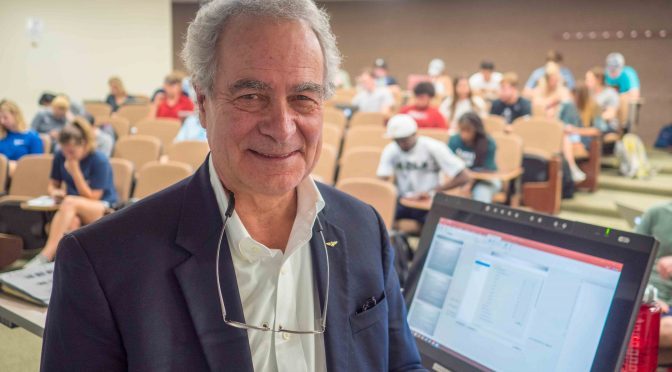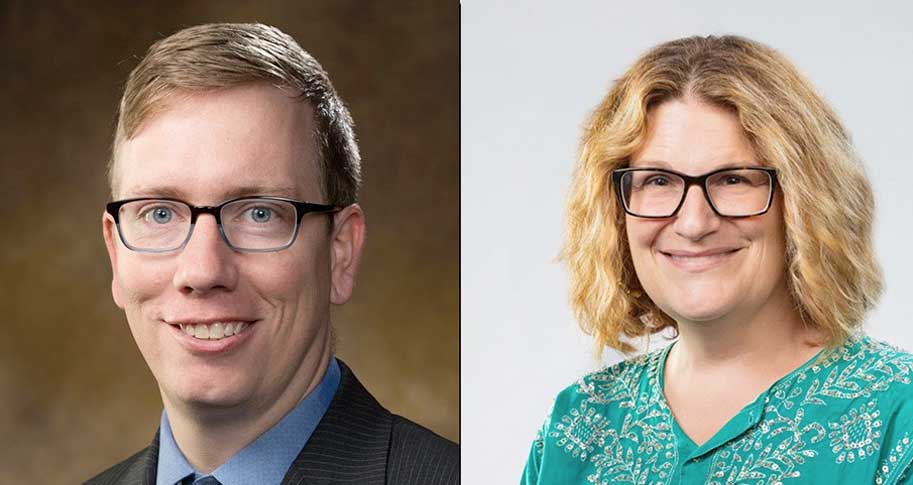
People sing about money. (Think the Beatles, Cindi Lauper, ABBA, Lady Gaga.) They talk about money. They dream about money. But not many ordinary, everyday people do much about money.
And they should. Even people who aren’t business majors. The Sam M. Walton College of Business at the University of Arkansas offers two courses – Finance 1003 and Finance 3003 – especially for those who should be doing something about their money and aren’t.
Chris Tompkins, a lecturer in the Walton College Department of Finance who teaches some of the sections, says the lessons learned in the classes give students power over their money.
“They will control their money instead of letting the lack of it control them,” Tompkins said.
FINN1003 is called Your Money and Credit. FINN3003 is Personal Financial Management. As you would expect, the upper-level course goes deeper into the subject. “The two are similar, but FINN 3003 delves into investments – stocks, bonds, mutual funds and real estate – retirement planning and estate planning, whereas 1003 does not cover those subjects,” Tompkins said. “With less subject matter in 1003, we go slower.”
Students hear lectures on the theory of building wealth, the good and bad of credit and on buying a car or a home. They also work through financial simulations and case studies.
Tompkins holds a law degree and was vice president and a national sales manager at Budgetext Corp. before beginning to teach at the Walton College. That background makes him perfectly equipped to guide students through keeping and building up the money they earn. “These courses are designed to help anyone desiring to better manage personal finances,” Tompkins said.
Noel Morris, who also teaches the courses, owned and operated a multi-line insurance agency in Springdale and continues to do consulting work. “A big challenge is getting the students to realize that financial difficulties are a paycheck or two away, in the real world,” Morris said.
Many of the lessons boil down to budgeting.
“They need to a budget every month, before the first of the month and need to ‘spend’ all prospective cash on paper before the first of the month,” Tompkins said. “Then they need to implement and track expenditures as the month progresses.”
“This is not so much something to ‘know’ as it is something to ‘know to do’,” he said. “If they do these basics, a great deal of the other information and skills will almost naturally flow. A close second is managing, decreasing and ultimately eliminating consumer debt – at least not using debt for monthly operating expenses.”
Course instructors bring real-world examples to the classroom to help make the lessons relevant to students.
“Just one example: In the section on automobile financing, I include a lot of information and tips – based on my experience and that of family and friends – of how to talk and negotiate with a car salesman and lenders,” Tompkins said. “Just what can you do to improve skills in negotiating and arranging car financing, valuation (of a new or used car and trade-in), inspection and purchase. Same with house financing.”
The biggest challenge is getting students to understand that finance is personal – that it is not just about “business.” Students who take the courses come from all over the university – J. William Fulbright College of Arts and Sciences, Fay Jones School of Architecture, Dale Bumpers College of Agriculture, the College of Engineering and the College of Education and Health Professions were all represented in spring and fall 2017. Forty percent of the students in fall and spring sessions came from outside the Walton College. Most of those taking the courses – nearly 70 percent – were juniors and seniors.
In all, more than 6,200 students from all colleges have taken the courses in the past five years.
“The average college senior in Arkansas graduates with $30,000 in student loans and two maxed out credit cards,” Morris said. “We hope that maybe we can keep some of our students from being ‘average.’”




